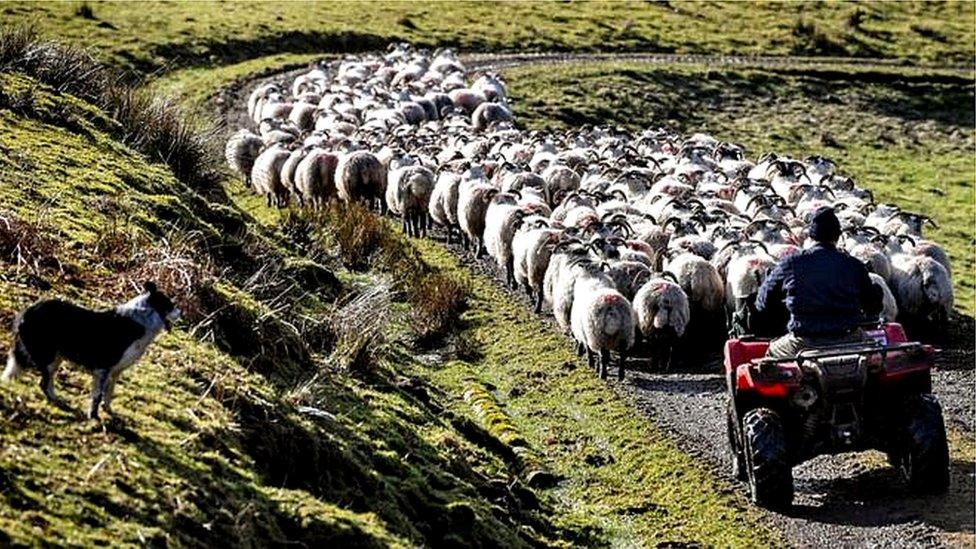Farming in Wales: Farmers must plant trees to get cash
- Published
- comments
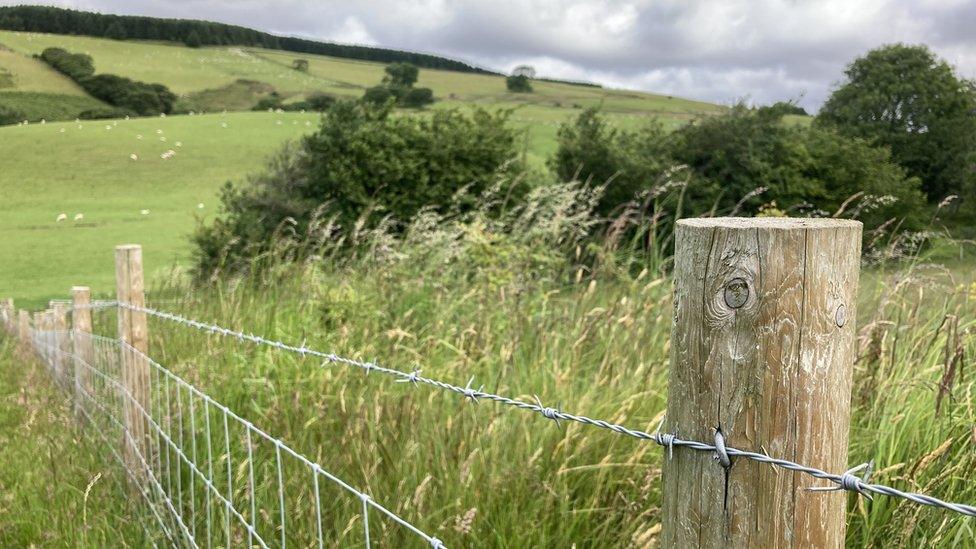
Farmers are being told they need to plant more trees on their land
Farmers in Wales will have to cover at least 10% of their land with trees in order to qualify for public funding in future, it has been announced.
Creating ponds and helping manage wildlife habitats are also requirements of the new subsidy scheme.
Ministers said farmers could earn a "fair and stable income" while "drastically improving" biodiversity.
Farming unions said they would look closely at the proposals to see if they were practical.
A new Welsh subsidy scheme to replace EU-based payments for agriculture has been in development since the Brexit vote and is set to be introduced from 2025.
The latest update comes in the form of a 70-page document from the Welsh government outlining in more detail how it will all work.
What will farmers have to do?
Farmers will be asked to deliver a set of "universal actions" in order to qualify for the most basic payment.
These include collecting and reporting data on the use of pesticides on their fields and antibiotics in their livestock, as well as ensuring they have enough biosecurity measures in place to prevent the spread of disease.
At least 10% of tree cover on their land is required, as is creating, managing and enhancing semi-natural habitats across a further 10% of their land.
If they have existing broadleaf woodland then those trees can count towards both the tree-cover and habitat requirements - though any newly planted trees will be classed as tree-cover only.
They can then add on "optional actions" to their subsidy contract for extra funding.
This would cover more ambitious work that depends on local conditions - such as funding for restoring peat bogs or a move into using some fields for growing fruit and vegetables.
Finally - a pot of funding for "collaborative actions" would allow farms to work together on large-scale projects like improving water quality across a river catchment, or linking up areas of woodland for wildlife.
Farms would enter into a five-year contract with the government and would largely monitor and report on the results of their efforts themselves, though they could be subject to random inspections.
How much will they earn?
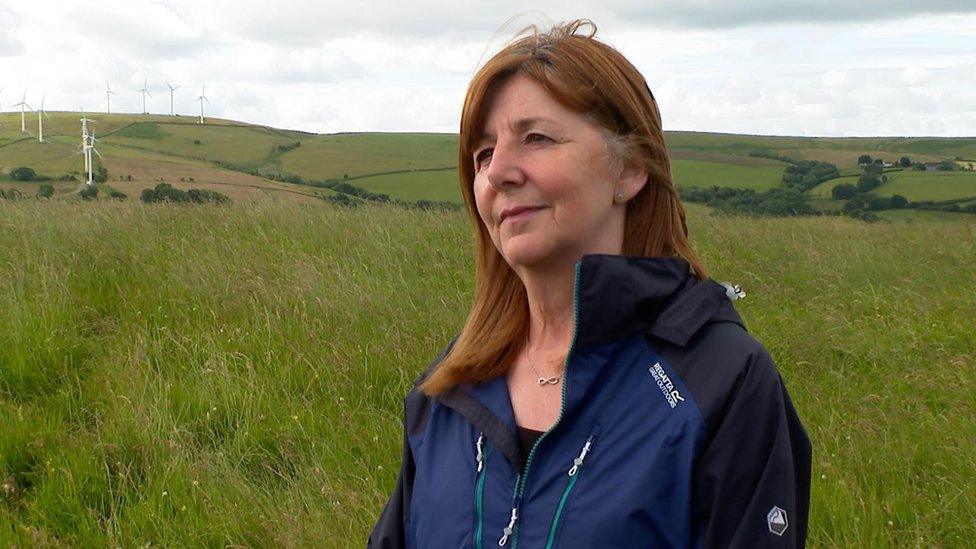
Rural affairs minister Lesley Griffiths says farmers should be prepared for less money
Crucially payment rates have not been published today, which the Welsh government acknowledged was "disappointing" for farmers.
Ministers said they were still waiting on modelling and economic analysis.
The plan is to hold a third and final consultation next year once the full details are available.
Ongoing "stability payments" based on the old subsidy system have been pledged until the end of the transition period in 2029, as part of the cooperation agreement between Plaid Cymru and Welsh Labour.
EU funding had been worth around £337m a year to Welsh farmers - with the vast majority relying on the payments to survive.
But Rural Affairs Minister Lesley Griffiths told BBC Wales the sector needed to be "realistic" and "prepare for possible reductions" amid an ongoing row between the Welsh and UK governments over the budget for farming in future.
What do farmers say?
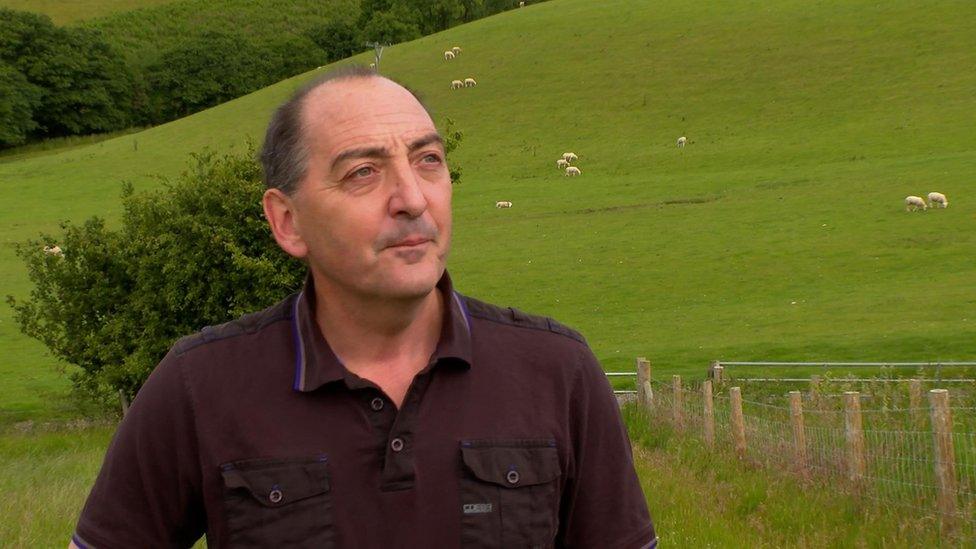
Farmer Russell Edwards wants to know if there will be enough money to carry out the new requirements
On his sheep farm high above the village of Hendreforgan on the border between Rhondda Cynon Taf and Bridgend, Russell Edwards said subsidy payments had been a "lifeline".
"We wouldn't survive without a subsidy of some shape or form", he said, despite efforts to diversify with a campsite and wedding venue.
What the Welsh government is proposing "could be very good", he added, but he had not "seen any money on the table yet - and that's the big question, will there be enough to do these things?"
He said he believed he already ticked many of the boxes to qualify for the baseline payments but wouldn't want to have to plant more trees.
"We've used a fraction of our normal fertiliser because of the cost this year and I need every inch of ground" to grow grass for the flock, he said.
Dylan Morgan, head of policy at farming union NFU Cymru, said publication of a set of universal actions for farmers in return for an annual payment was "a big step forward" and "far less bureaucratic" than previous proposals.
"What we need to do now is look at the actions in there and see if they are practical and achievable on farms," he said.
There would be particular concern about the tree-cover requirements, he claimed, adding there would be "a lot of farms in Wales - on the coast or in the uplands for example - who may struggle to achieve that."
Do the reforms go far enough?
Over 80% of the Welsh landscape is looked after by farmers.
It's why the Welsh government sees them as key to its response to the twin threats of climate change and nature loss, though it insists it does not want to see widespread land use change away from farming.
Alexander Phillips, of wildlife charity WWF Cymru, said many farmers would be achieving some of the requirements already and "that was good in one way because it shows we're finally going to reward them for that positive action".
"The downside is that a lot of it might be low hanging fruit which means it won't deliver the change needed… to tackle the nature and climate emergencies in this sector."
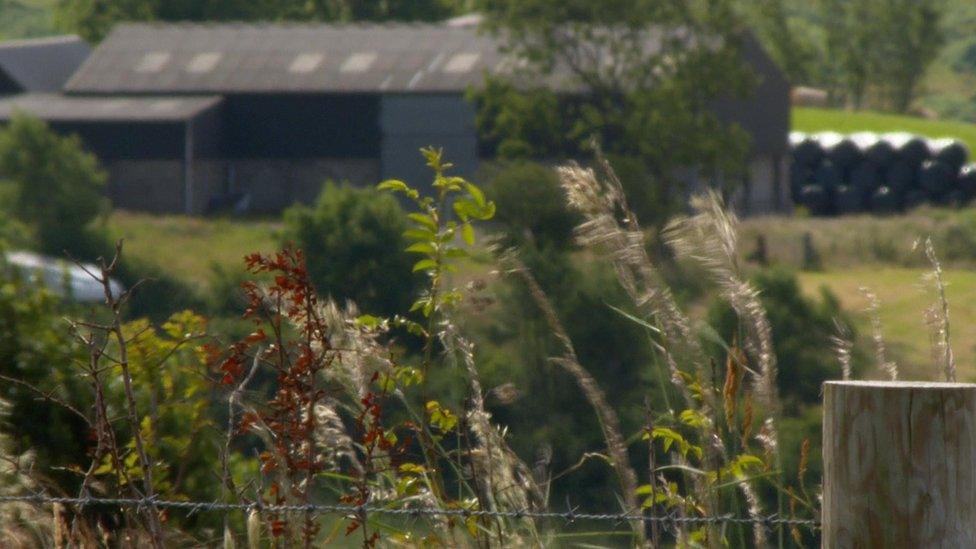
Russell Edwards' farm is reliant on subsidies
Ms Griffiths said she wanted to "keep farmers on the land", growing food while helping protect the environment.
"It's about a balance - the biggest threats to sustainable food production are the climate and nature emergencies," she said.
"It's one single agenda".

FANCY A STROLL?: Welsh walks to try this summer
WILD MOUNTAINS OF SNOWDONIA : Five farming families open their gates and share their lives

Related topics
- Published7 June 2022
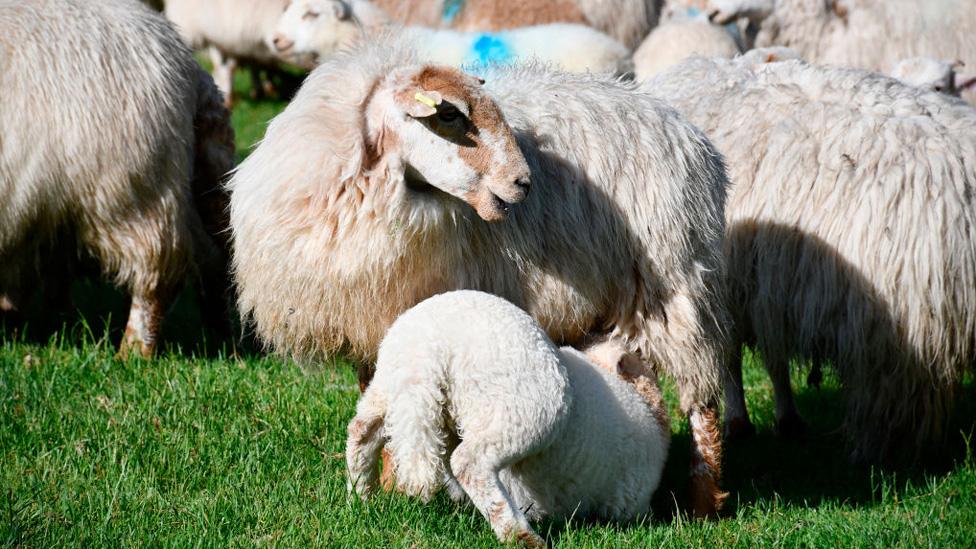
- Published21 September 2021

- Published23 May 2021
